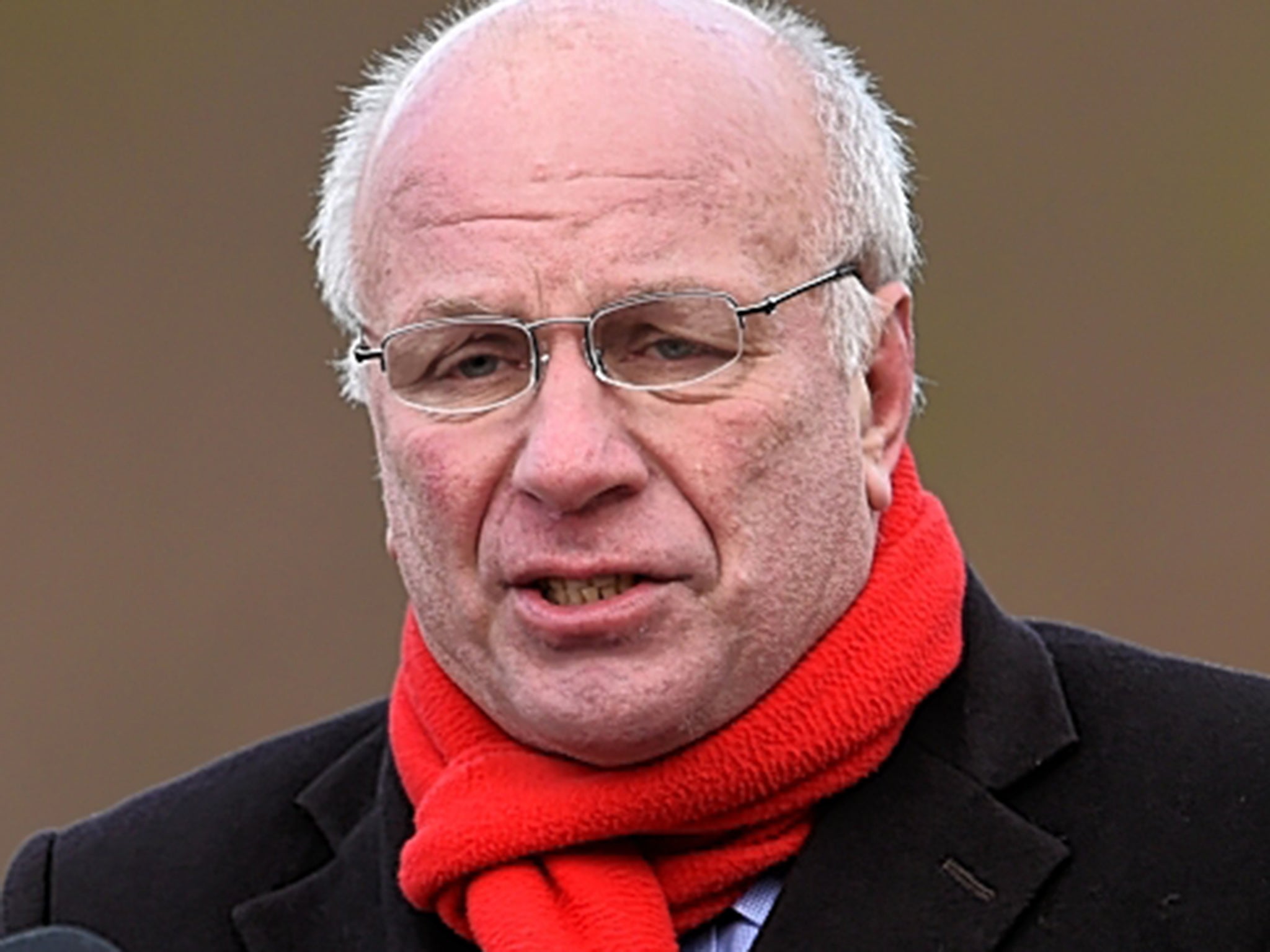Greg Dyke to stand down after failing to persuade FA council to reform
'I had already decided that if no reform was possible, I was going to leave anyway this summer'

The Blazers of the Football Association have claimed another victim. This time it is Greg Dyke, the organisation’s chairman, heading for the door, pulling knives out of his back on the way out.
Dyke tonight announced he would be stepping down this summer, a year earlier than planned, due to resistance from a number of FA councillors and board members to long overdue reforms to the body’s governance.
Dyke was himself only appointed because his predecessor, David Bernstein, was forced from office when councillors imposed a new age limit for the chairman of 70 – despite many councillors having enjoyed their own 70th birthdays long before.
As he will be 69 in May, Dyke could have remained in office only for one more year. He had planned to stand for re-election this summer for this partial term of office but an FA Board meeting on Thursday revealed a split over the reforms.
That division meant the struggle to push through change with a recalcitrant council this summer would be a bitter one. Dyke, recognising that his own forceful personality is part of the problem, decided to quit.
In a statement he said: “It became clear there wouldn’t be a unanimous position on governance reform in the board. What now appears to be the case is that there is a majority position on the board for much-needed significant reform. I fully support this, but I recognise it is going to be a fight to get through the FA council.
“I had already decided that if no reform was possible, I was going to leave anyway this summer, a position I had shared with a number of colleagues.
“What I now see is that even if we get the reform through – which will be a difficult and divisive process, although essential – I am probably not the best person to pick up the pieces following the inevitable discord.”
Dyke came into the post bolstered by what he once described as “the only advantage of being old and having made money – you don’t give a f***”. He played up to that, making a careless, and prescient, throat-slitting gesture when England drew the group of death at the 2014 World Cup, issuing a bold prediction about England winning the 2022 finals, picking up Bernstein’s baton in castigating Sepp Blatter and Fifa, and taking on a clutch of vested interests in an attempt to improve the flow of players to the England team.
As with his predecessors he found that, in football, change is generally resisted, especially by those involved in running it. The Premier League would not be browbeaten over quotas, nor the Football League over B teams.
Now his own organisation is manning the barricades, over the same issue as always. An unwieldy, unrepresentative council, containing many whose inclusion is an anachronism, refuses to step away from the buffet trolley and give up its free tickets.
His departure is unlikely to affect the England manager Roy Hodgson’s position, which is more the province of the FA chief executive, Martin Glenn, whose appointment looks like being one of Dyke’s successes.
Dyke’s most lasting legacy should be in grass-roots development, having put his influence and dynamism behind the creation of football hubs featuring an ambitious, much-needed and significant increase in artificial pitches.
The first hub is nearing completion in Sheffield but, even though the FA is in better shape financially than when Dyke arrived, whether sufficient funding is raised to fulfil the project in its entirety remains to be seen. As he has come to realise, with the FA nothing is straightforward.
Join our commenting forum
Join thought-provoking conversations, follow other Independent readers and see their replies
Comments
Bookmark popover
Removed from bookmarks